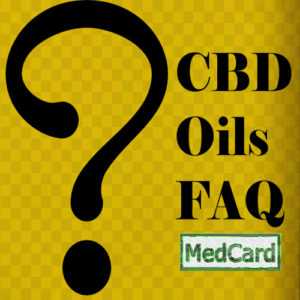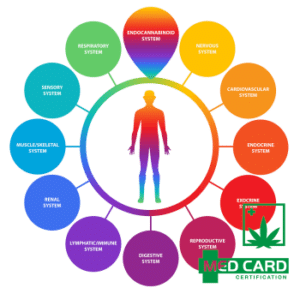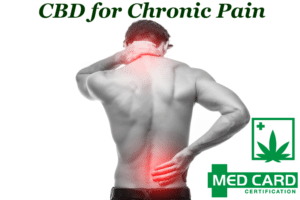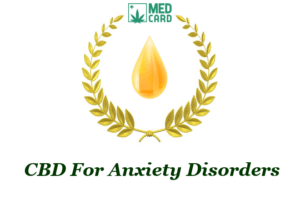

CBD, Cannabidiol Oil FAQ’s
Will CBD, or cannabidiol oil get me high?
- No. CBD is a product that has no THC if derived from hemp and very little if derived from cannabis. THC is the chemical compound that creates the “high”. CBD products are available for patients that have a need for non-euphoric treatment.
What is the difference between CBD & THC?
- Psychoactive Vs. Non-Psychoactive. THC creates a euphoric effect due to the way it connects to the bodies endocannabinoid system. The endocannabinoid system has been recently recognized as an important modulatory system in the function of brain, endocrine, and immune tissues. Cannabidiol, or CBD reacts differently and is used with patients that require or prefer non euphoric care.
Can I take medical cannabis CBD products only without THC to a Different State?
- Medical marijuana patients may face federal and local charges of transporting marijuana if they cross state lines with the drug. This is true even if the states between which they are traveling allow medical marijuana. Should you need to travel with your marijuana it would be best to contact the state’s Bureau of health to understand the exact laws of the state you are traveling to in order to not risk breaking the law.
Can you overdose on CBD products?
- There are no known cases of anyone overdosing of CBD.
I see CBD Oils, Edibles, Topicals, & Gummies for sale online, in commercials and signs at head shops around town, is this CBD Oil legal?
- Hemp CBD oil which is derived from the hemp plant is legal throughout the United States, however to obtain cannabis derived low-THC high-CBD Medicines for medical use, you will need to receive a recommendation from a qualified physician.
Is CBD for Pets really a thing?
- Yes, CBD for Dogs, CBD for Cats, and CBD for pets in general is becoming a popular treatment for caring for pets that have arthritis, chronic pain and other ailments. The efficacy and safety of CBD for dogs, cats, and other pets have not been evaluated by the Food and Drug Administration. The FDA only evaluates foods and drugs, not supplements like these products.
Where can I get CBD for pets?
- You can find CBD for pets online, at some pet stores, and at holistic shops.
- Buy CBD for pets online.
What is a Cannabinoid?
A cannabinoid is a class of chemical compounds that occurs naturally in plants and animals. There are more than 100 different naturally occurring cannabinoids. Are Cannabidiol and other Cannabinoids considered Marijuana? Until recently, the most well-known compound in cannabis was tetrahydrocannabinol (THC). This is the psychoactive ingredient in marijuana. Marijuana also contains other cannabinoids, including CBD. THC is well-known for the mind-altering “high” it produces when broken down by heat and introduced to the body, such as when smoking the plant or cooking it into foods. CBD and other cannabinoids are not psychoactive. This means they do not change the state of mind of the person who uses them. However, cannabinoids do appear to produce significant changes in the body, and may have medical benefits.
Are there side effects of using CBD?
- The most common side effects of CBD noted are:
- Fatigue/tiredness
- Diarrhea
- Changes in appetite or weight
- Dry mouth
- Low blood pressure
- Pregnancy and breast-feeding: There is not enough reliable information about the safety of taking CBD or other cannabinoids if you are pregnant or breast feeding.
- Parkinson’s disease: Some early research suggests that taking high doses of CBD might make muscle movement and tremors worse in people with Parkinson’s disease.
- There have been no known findings of significant central nervous system side effects, or effects on vital signs or mood among people who use CBD sparingly or more heavily.
How do Cannabidiol and other Cannabinoids Work?
CBD and other cannabinoids attach themselves to certain receptors in the body to produce their effects. The human body produces certain cannabinoids on its own, and has two receptors, called CB1 and CB2 receptors. CB1 receptors are found all around the body, but many of them are in the brain. In general, the CB1 receptors in the brain deal with coordination and movement, pain, emotions and mood, thinking, appetite, and memories. THC attaches to these receptors. CB2 receptors are more common in the immune system. They have an effect on inflammation and pain. It used to be thought that CBD acts on these CB2 receptors, but it appears now that cannabinoids do not act on either receptor directly. Instead, they seem to influence the body to use more of its own cannabinoids. Potential Health Benefits Because of the way CBD and other cannabinoids act in the body, they may have some potential health uses. Certain research (including both cell culture and animal models) has shown cannabinoids to have a range of effects that may be therapeutically useful, including anti-seizure, antioxidant, neuroprotective, anti-inflammatory, analgesic, anti-tumor, anti-psychotic, and anti-anxiety properties.
How are Cannabidiol and other Cannabinoids Used?
CBD and other cannabinoids are taken orally, rubbed on the skin as a cream or an oil, and sometimes inhaled through vapor or used intravenously to produce their effects. Potential Side Effects and Health Risks Small-scale studies that have looked into the safety of CBD and other cannabinoids in adults have found that they are generally well tolerated across a wide range of doses. But because there are so many cannabinoids, not all have been well studied at this time.
Does CBD help with sleep?
The interesting thing about CBD as related to sleep is that studies show that CBD not only helps people sleep at night, it also in some cases helps users to be more wakeful and focused during the day.
https://medcard.app/cannabidiol-oils/top-10-cbd-oil-questions-2019/
What is CBD? Benefits and Uses of Cannabidiol












